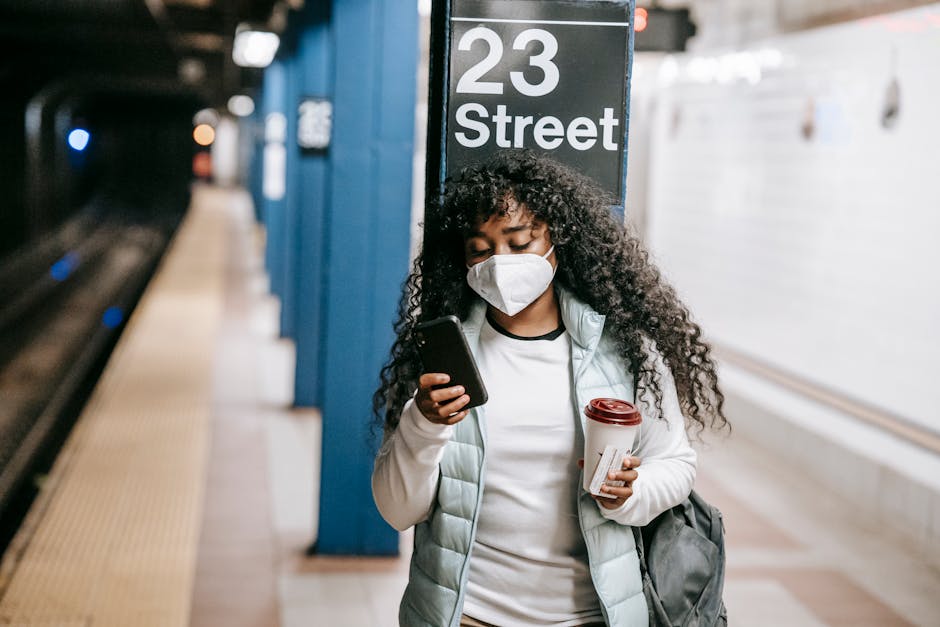You ever get that feeling you’re being followed? Not by a person, but by a pair of socks. You looked at them online once, just once, and now they’re everywhere. On your news sites, in your social media, popping up before videos. It is a little creepy, honestly. It’s the Google Ads machine working overtime, and by 2025, it’s gotten pretty good at what it does. The whole thing is designed to know what you might want to buy. So, if you’re sick of it and just want it to stop, you’re in the right place. We’re going to walk through how you can actually shut a lot of this down. It’s not a single magic button, but it is a series of buttons you can press that make a real difference.
So, What’s the Deal with All These Ads?
Basically, Google is a giant advertising company. That’s how it makes most of its money.
It watches what you search for.
It looks at the websites you visit.
It even checks out videos you watch on YouTube.
All this information gets put into a big profile about you. They don’t know your name, not exactly, but they know “user #12345” really likes gardening and is thinking about a new car. Then, companies pay Google to show their ads to people like you. It is the reason why the ads you see are normally so weirdly specific to things you were just thinking about.
Your Google Account: The Main Control Panel
This is the big one. If you only do one thing, do this. Google actually gives you controls to manage this stuff, but they don’t exactly shout about it from the rooftops. You have to go find it.
It’s called “My Ad Center.”
This is where you can see what Google thinks it knows about you and where you can tell it to stop using that information.
Taming the Ad Settings Beast
Getting there can be a little bit of a journey.
First, go to your main Google Account page. You can just search for “My Google Account.”
Look for a section called “Data & privacy” on the side menu. Click it.
Scroll down until you see a box that says “My Ad Center.” This is the spot.
At the very top of this page, you’ll see “Personalized ads.” There’s a big button next to it that probably says “On.”
What you want to do is click that button and turn it off.
Google will give you a little warning message saying ads will be less useful. That’s kind of the whole point, right? Confirm you want to turn it off.
What Does Turning This Off Actually Do?
This move is a big deal. What it is, is you telling Google to stop using your account activity to build that ad profile.
It won’t see that you’ve been searching for vacation spots and then show you airline ads.
It won’t use your YouTube history to decide you need to see ads for movie trailers.
You will still see Google ads. They won’t disappear completely. But, and this is the important part, they will be random. They’ll be based on the website you’re on, not on you. It makes the internet feel a lot less like it’s listening in on your thoughts.
Browser-Level Fixes for Extra Peace
Okay, so you’ve dealt with your Google account. But we can go a step further. The browser you use every day can be a huge help or a huge problem.
Most people use Chrome which is made by Google. You can still make it better though.
The best thing to do is get what’s called an ad blocker. This is a little add-on for your browser that just stops most ads from even loading.
A couple of good ones are uBlock Origin or AdGuard. You just go to your browser’s extension store, search for them, and click “add.” It’s normally that simple.
Or, you could consider using a different browser altogether. Browsers like Brave have ad blocking already built right in. You don’t have to do anything. Others like Firefox are also very focused on not letting websites track you everywhere. Using one of these is a pretty solid way to cut down on ads from Google and everyone else too.
Mobile Madness: Stopping Ads on Your Phone
Your phone is probably where you see the most ads. Both Android and iPhone have settings you can change that help a lot.
For Android phones, it’s a thing called the Advertising ID. It’s a unique number your phone uses to show you personalized ads in apps.
You can go into your phone’s Settings, find the “Google” section, then “Ads.” Inside there, you’ll see an option to “Delete advertising ID.” Just do that. Apps won’t be able to use it to track you anymore.
For iPhones, Apple made a big change a while back called “App Tracking Transparency.”
You’ve probably seen it. It’s that pop-up when you open an app that asks if it can track you across other apps and websites.
Always say no.
If you’ve just been clicking “yes,” you can go into your Settings, then “Privacy & Security,” then “Tracking.” In there you can turn off the main switch that says “Allow Apps to Request to Track.” This stops them from even asking. It is a very direct way to stop a lot of tracking.
Frequently Asked Questions (FAQs) about Stopping Google Ads
How can I stop Google ads completely?
You can’t really stop them 100% without just not using the internet. But by turning off ad personalization in your Google Account and using a good ad blocker on your browser, you can get very close, maybe blocking 99% of them.
Will using an ad blocker make my computer unsafe?
No, it’s generally considered to be safer. Ad blockers can prevent you from clicking on malicious ads that might contain viruses or scams. Just make sure you get your ad blocker from the official browser store (like the Chrome Web Store) and not some random website.
I turned off personalized ads, but I still see ads. Why?
Turning off personalization just stops Google from using your personal data. It will still show you ads based on the content of the website you are on. For example, if you’re on a car review website you will probably see ads for cars. An ad blocker is what stops these from appearing at all.
Does a VPN help stop Google Ads?
Not really. A VPN hides your location and IP address, but Google is probably still logged into your account. It will know it’s you. The ads might be for things in a different country, but they’ll still show up. It’s not a tool for blocking ads.
Is it wrong to block ads since websites need them to make money?
This is a personal choice. It’s true many websites rely on ad money. Some ad blockers let you “whitelist” sites you want to support, allowing ads to show up just on those pages. It’s a balance between your privacy and supporting content creators.
Key Takeaways
Alright, that was a lot of info. If you’re going to remember anything, remember this stuff.
Your main weapon is in your Google Account. Go to “My Ad Center” and turn off “Personalized ads.”
Install a reputable ad blocker like uBlock Origin in your web browser. This is a game-changer.
On your phone, delete your Advertising ID (Android) or turn off App Tracking (iPhone).
You won’t stop every single ad, but you can definitely stop the creepy, personalized ones that follow you around.







Leave a Reply